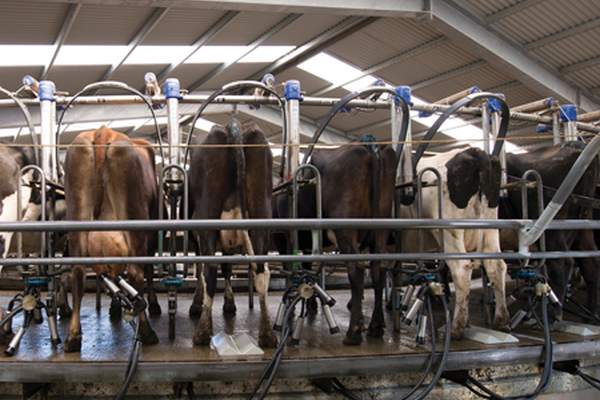Published on the 21/08/2019 | Written by Heather Wright

Growing diary productivity and competitiveness with better milk supply forecasting…
Swinburne University is hoping to develop a new internet of things system to get milk from farm to fridge more quickly, with highly accurate supply forecasting to bolster Australia’s AU$13.7 billion dairy industry.
The two-and-a-half year, AU$2 million project – which comes complete with the unwieldy title of The Live Inbound Milk Suply Chain Monitoring and Logistics for Productivity and Competitiveness’ Project (Milk Supply Chain Project) – will develop an internet of things based system for live monitoring of inbound milk supply chain.
“We will be using cutting-edge technology, including over 700 sensors, to measure specific aspects of the supply chain.”
The system will link 100 dairy farms, milk carriers and a milk processor and allows live monitoring of milk supply chains. Data collected will drive dynamic milk pickup and rescheduling as milk quantity and quality varies, track adherence to pick up processes and enable highly accurate milk supply forecasting.
“We will be using cutting-edge technology, including over 700 sensors, to measure specific aspects of the supply chain,” says Dimitrios Georgakopoulos, Director of Swinburne’s Internet of Things Lab and project researcher.
The project, which will also involve Bega Cheese and three Australian milk suppliers, will use Telstra’s newly deployed narrowband internet of things network.
“The data collected by the IoT sensors will find trends to make production schedules more efficient and enable highly accurate milk supply forecasting,” Georgakopoulos says.
“These collectively enhance the chain’s productivity and competitiveness,” he says, adding that the project will create opportunities to generate revenue for Australia’s AU$13.7 billion dairy industry.
The project, which was one of 16 to receive funding under round seven of the federal government’s Cooperative Research Centres Projects, is part of Swinburne’s Industry 4.0 initiative. The Industry 4.0 initiative recently won the 2019 Australian Business Award for Business Innovation.
“Swinburne is working with global industry to solve challenges and create opportunities from this profound transformation,” the University says.
IoT and the fourth industrial revolution have slowly been gaining a foothold in the diary sector globally, with sensors used to measure environmental factors including humidity, soil moisture and temperature and well as tracking animals – from body weight and temperature to activity, food intake, location and heart rates, while also measuring milk yield and quality.
Across the ditch in New Zealand, dairy giant Fonterra, is embracing Industry 4.0 ‘from cow to consumer’, using sensors to monitor soil moisture while and cows wear bovine equivalents of Fitbits to monitor their activity and grazing in an effort to bolster milk production.
The co-operative, whose innovation investments might be curtailed after forecasts of huge losses of up to NZ$675 million this year, also monitors more than 10,500 on-farm milk vats using real-time data to determine the best routes for the company’s milk tankers – something the Swinburne project will also be enabling.
The data is integrated with Fonterra’s nearly 600 milk tankers, while Fonterra’s processing plants also rely heavily on monitoring, collecting more than 430,000 data points.
The dairy co-op says IoT is one of the most important tech trends shaping agriculture, enabling reporting on factors such as moisture levels, fertiliser loading and soil composition as well as the health, fertility, location and progress of animals. Sensors on equipment also capture agronomic data and mechanisation loads.
The Australian Cooperative Research Centres (CRC) Projects are designed to improve the effectiveness of Australian research, bringing researchers and industry together to solve real world problems and deliver tangible outcomes.
Other initiatives receiving funding through the latest CRC Projects program include a project to create high speed encryptions that can withstand cyber attacks by quantum computers, which received $2.9 million in funding, a project to enhance privacy technology for education service providers which received $2 million and an initiative to use smart 3D camera automation to improve pressure injury diagnosis and treatment in aged care patients, which received $1.5 million.



























